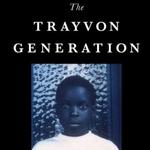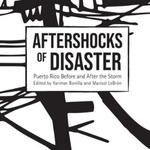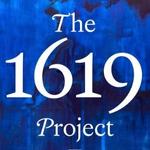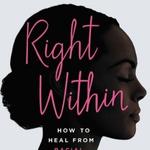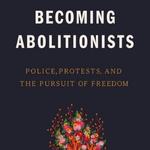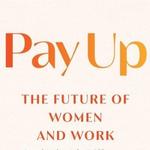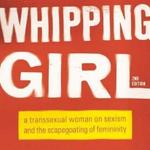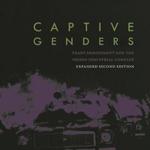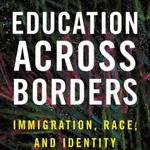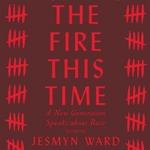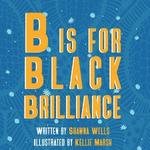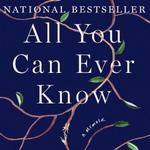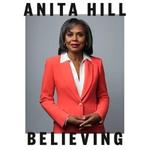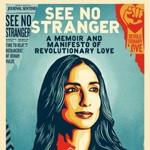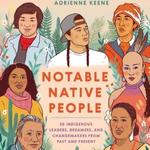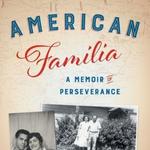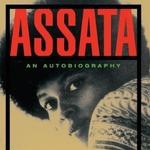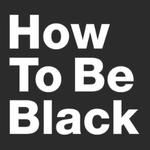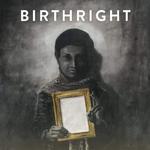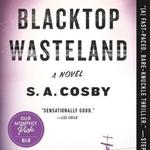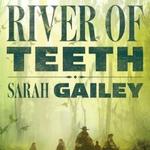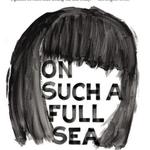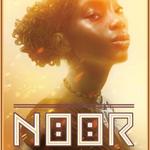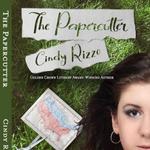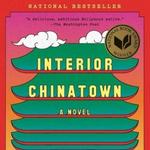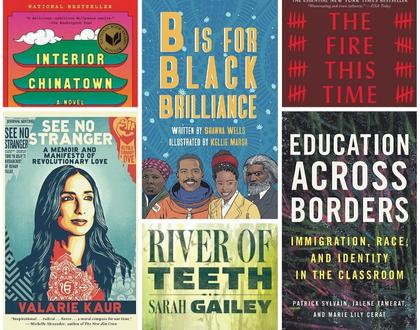
July 6, 2022
YW Boston’s 2022 Reading List
YW Boston’s Sixth Annual Recommended Reading List
Reading is an immersive experience that deepens and challenges our thinking. This simple activity can help change attitudes, and behaviors, and create more inclusive environments. We compiled a list of our favorite books because we believe in the power of reading and how it can help us reach our goals of eliminating racism and empowering women. We hope this selection will broaden your perspective on equity and justice.
This year’s reading list includes picks from our staff, board of directors, Academy of Women Achievers Host Committee, and our 2022 Academy of Women Achievers awardees. With genres ranging from non-fiction, fiction, memoirs, poetry, and books for kids and teens, we hope you can find a new read.
Non-Fiction
 The Trayvon Generation: Yesterday, Today, Tomorrow by Elizabeth Alexander
The Trayvon Generation: Yesterday, Today, Tomorrow by Elizabeth Alexander
Recommended by Anouska Bhattacharyya, PhD, VP of Programs
In The Trayvon Generation Elizabeth Alexander expands the viral essay that spoke so resonantly to the persistence of race as an ongoing issue at the center of the American experience. Alexander looks both to our past and our future with profound
insight, brilliant analysis, and mighty heart, interweaving her voice with groundbreaking works of art by some of our most extraordinary artists
 This Here Flesh: Spirituality, Liberation, and the Stories That Make Us by Cole Arthur Riley
This Here Flesh: Spirituality, Liberation, and the Stories That Make Us by Cole Arthur Riley
Recommended by Jeneé Osterheldt, 2022 AWA Awardee
Arthur Riley reflects on the stories of her grandmother and father, and how they revealed to her an embodied, dignity affirming spirituality, not only in what they believed but in the act of living itself. Writing memorably of her own childhood and coming to self, Arthur Riley boldly explores some of the most urgent questions of life and faith.
 Aftershocks of Disaster: Puerto Rico Before and After the Storm edited by Yarimar Bonilla and Marisol LeBrón
Aftershocks of Disaster: Puerto Rico Before and After the Storm edited by Yarimar Bonilla and Marisol LeBrón
Recommended by Coralys Negretti, Dir. of Marketing and Communications
Aftershocks collects poems, essays and photos from survivors of
Hurricane Maria detailing their determination to persevere. It examines the lasting effects of hurricane Maria, not just the effects of the wind or the rain, but delving into what followed: state failure, social abandonment, capitalization on human misery, and the collective trauma produced by the botched response.
 1619 Project: A New Origin Story created by Nikole Hannah-Jones and The New York Times Magazine, edited by Caitlin Roper, Ilena Silverman, and Jake Silverstein
1619 Project: A New Origin Story created by Nikole Hannah-Jones and The New York Times Magazine, edited by Caitlin Roper, Ilena Silverman, and Jake Silverstein
Recommended by Jeneé Osterheldt, 2022 AWA Awardee
This book substantially expands on The New York Times Magazine’s “1619 Project,” weaving together eighteen essays that explore the legacy of slavery in present-day America with thirty-six poems and works of fiction that illuminate key moments of oppression, struggle, and resistance. The essays show how the inheritance of 1619 reaches into every part of contemporary
American society, from politics, music, diet, traffic, and citizenship to capitalism, religion, and our democracy itself.
 Right Within: How to Heal from Racial Trauma in the Workplace by Minda Harts
Right Within: How to Heal from Racial Trauma in the Workplace by Minda Harts
Recommended by Dominique Calixte, Assoc. Dir. of Annual Giving and Special Events
Filled with Minda Harts’ signature wit and warmth, Right Within offers strategies for women of color to speak up during racialized moments with managers and clients, work through past triggers they may not even know still cause pain, and
reframe past career disappointments as opportunities to grow into a new path. Through action points, exercises, and clear -eyed coaching, Harts encourages women to summon hidden reserves of strength and courage.
 Becoming Abolitionists: Police, Protests, and the Pursuit of Freedom by Derecka Purnell
Becoming Abolitionists: Police, Protests, and the Pursuit of Freedom by Derecka Purnell
Recommended by Jeneé Osterheldt, 2022 AWA Awardee
In Becoming Abolitionists, Purnell draws from her experiences as a
lawyer, writer, and organizer initially skeptical about police abolition. Purnell details how multi-racial social movements rooted in rebellion, risk-taking, and revolutionary love pushed her and a generation of activists toward abolition. Here, Purnell argues that police cannot be reformed and invites readers to envision new systems that work to address the root causes of violence.
 Pay Up: The Future of Women and Work (and Why It’s Different Than You Think) by Reshma Saujani
Pay Up: The Future of Women and Work (and Why It’s Different Than You Think) by Reshma Saujani
Recommended by Saskia Epstein, 2022 AWA Awardee
In this urgent and rousing call to arms, Reshma Saujani dismantles the myth of “having it all” and lifts the burden we place on individual women to be primary caregivers, and to work around a system built for and by men. Through powerful data and personal narrative, Saujani shows that the cost of inaction—for families, for our nation’s economy, and for women themselves—is too great to ignore.
 Whipping Girl: A Transsexual Woman on Sexism and the Scapegoating of Femininity by Julia Serano
Whipping Girl: A Transsexual Woman on Sexism and the Scapegoating of Femininity by Julia Serano
Recommended by Michelle Tat, 2022 AWA, Sylvia Ferrell-Jones Awardee
Julia Serano shares her experiences and insights—both pre- and post-transition—to reveal the ways in which fear, suspicion, and dismissiveness toward femininity shape our societal attitudes toward trans women, as well as gender and sexuality as a whole. She exposes how deep-rooted the cultural belief is that femininity is frivolous, weak, and passive. In addition to debunking popular misconceptions about being transgender, Serano makes the case
that today’s feminists and transgender activists must work to embrace and empower femininity—in all of its wondrous forms.
 Captive Genders: Trans Embodiment and the Prison Industrial Complex edited by Eric A. Stanley and Nat Smith
Captive Genders: Trans Embodiment and the Prison Industrial Complex edited by Eric A. Stanley and Nat Smith
Recommended by Michelle Tat, 2022 AWA, Sylvia Ferrell-Jones Awardee
Pathologized, terrorized, and confined, trans/gender non conforming and queer folks have always struggled against the prison industrial complex. Eric A. Stanley and Nat Smith bring together current and former prisoners, activists, and academics for a new understanding of how race, gender, ability, and sexuality are lived under the crushing weight of captivity.
 Education Across Borders: Immigration, Race, and Identity in the Classroom by Jalene Tamerat (LB’21), Patrick Sylvain, and Marie Lily Cerat
Education Across Borders: Immigration, Race, and Identity in the Classroom by Jalene Tamerat (LB’21), Patrick Sylvain, and Marie Lily Cerat
Recommended by Kathryn Henderson, VP of Strategic Partnerships, LeadBoston 2011
In this collection, three educators tell and draw on their experiences as immigrants and educators to address racial inequity in the classroom and provide a thorough analysis of different strategies that create an inclusive classroom environment. White educators that serve BIPOC students will benefit from these reflections on incorporating culturally relevant pedagogies that value the diverse experiences of their students.
 The Fire This Time by Jesmyn Ward
The Fire This Time by Jesmyn Ward
Recommended by Dominique Calixte, Assoc. Dir. of Annual Giving and Special Events
In this bestselling, widely lauded collection, Jesmyn Ward gathers our most original thinkers and writers to speak on contemporary racism and race, including Carol Anderson, Jericho Brown, Edwidge Danticat, Kevin Young, Claudia
Rankine, and Honoree Jeffers. Envisioned as a response to The Fire Next Time, James Baldwin’s groundbreaking 1963 essay collection, these contemporary writers reflect on the past,
present, and future of race in America.
 B is for Black Brilliance written by Shawna Wells, illustrated by Kellie Marsh
B is for Black Brilliance written by Shawna Wells, illustrated by Kellie Marsh
Recommended by Saskia Epstein, 2022 AWA Awardee
B is for Black Brilliance is a powerful and in-depth read that will take you on a journey from the past and present to see how twenty-six brilliant Black people have taken society’s definition of Blackness and reclaimed it with their inventions, talent, and leadership. B is for Black Brilliance puts a whole new spin on the alphabet as it displays the brilliance of our ancestors and those who have come after them to give every child the determination and courage to change the future as we know it.
Memoir and Biography
 All You Can Ever Know: A Memoir by Nicole Chung
All You Can Ever Know: A Memoir by Nicole Chung
Recommended by Jeneé Osterheldt, 2022 AWA Awardee
From childhood, Nicole Chung heard the story of her adoption as a comforting, prepackaged myth. But as Nicole grew up—facing prejudice her adoptive family couldn’t see, finding her identity as an Asian American and as a writer, becoming ever more curious about where she came from—she wondered if the story she’d been told was the whole truth. Nicole Chung tells of her search for the people who gave her up, which coincided with the birth of her own child.
 Believing: Our Thirty-Year Journey to End Gender Violence by Anita Hill
Believing: Our Thirty-Year Journey to End Gender Violence by Anita Hill
Recommended by Tricia Hennessy, AWA Host Committee Member
In 1991, Anita Hill began something that’s still unfinished work. The issues of gender violence, touching on sex, race, age, and power, are as urgent today as they were when she first testified. Believing is a story of America’s three decades long reckoning with gender violence, one that offers insights into its roots, and paths to creating dialogue and substantive change. It is a call to action that offers guidance based on what this brave, committed fighter has learned from a lifetime of advocacy.
 See No Stranger: A Memoir and Manifesto of Revolutionary Love by Valarie Kaur
See No Stranger: A Memoir and Manifesto of Revolutionary Love by Valarie Kaur
Recommended by Samantha Berley, Advancement Senior Associate; Rebecca Booth-Fox, InclusionBoston Manager
Valarie Kaur—renowned Sikh activist, filmmaker, and civil rights lawyer—describes revolutionary love as the call of our time, a radical, joyful practice that extends in three directions: to others, to our opponents, and to ourselves. Drawing from the wisdom of sages, scientists, and activists, Kaur reclaims love as an active, public, and revolutionary force that creates new possibilities for ourselves, our communities, and our world.
 Notable Native People: 50 Indigenous Leaders, Dreamers, and Changemakers from Past and Present written by Adrienne Keene, illustrated by Ciara Sana
Notable Native People: 50 Indigenous Leaders, Dreamers, and Changemakers from Past and Present written by Adrienne Keene, illustrated by Ciara Sana
Recommended by Tricia Hennessy, AWA Host Committee Member
Celebrate the lives, stories, and contributions of Indigenous artists, activists, scientists, athletes, and other changemakers in this beautifully illustrated collection. This powerful and informative collection also offers accessible primers on important Indigenous issues, from the legacy of colonialism and cultural appropriation to food sovereignty, land and water rights.
 March: Book One written by John Lewis and Andrew Aydin, illustrated by Nate Powell
March: Book One written by John Lewis and Andrew Aydin, illustrated by Nate Powell
Recommended by Aaron Halls, Marketing Associate
March is a vivid first-hand account of John Lewis’ lifelong struggle for civil and human rights, meditating in the modern age on the distance traveled since the days of Jim Crow and segregation. Book One spans John Lewis’ youth in rural Alabama, his life-changing meeting with Martin Luther King, Jr., the birth of the Nashville Student Movement, and their battle to tear down segregation through nonviolent lunch counter sit-ins, building to a stunning climax on the steps of City Hall.
 American Familia: A Memoir of Perseverance by David A. Morales
American Familia: A Memoir of Perseverance by David A. Morales
Recommended by Evelyn Barahona, 2022 AWA Awardee
Told as a conversation between David and his two sons, American Familia is David’s story of growing up in rural poverty in Puerto Rico and urban poverty in the United States, detailing hopeful and transformative life-lessons along the way. This is also his family’s story: one of faith, grit, and empowerment. Part memoir and part rallying cry, this book
encourages discounted youth with a vision of hope that they, too, can transcend their environment.
 Assata: An Autobiography by Assata Shakur
Assata: An Autobiography by Assata Shakur
Recommended by Jeneé Osterheldt, 2022 AWA Awardee
This intensely personal and political autobiography belies the fearsome image of JoAnne Chesimard long projected by the media and the state. With wit and candor, Assata Shakur recounts the experiences that led her to a life of activism and portrays the strengths, weaknesses, and eventual demise of Black and White revolutionary groups at the hand of government officials.
 How to be Black by Baratunde Thurston
How to be Black by Baratunde Thurston
Recommended by Rebecca Booth-Fox, InclusionBoston Manager
The Onion’s Baratunde Thurston shares his 30-plus years of expertise in being Black, with helpful essays like “How to Be the Black Friend,” “How to Speak for All Black People,” “How To Celebrate Black History Month,” and more, in this satirical guide to race issues. Audacious, cunning, and razor-sharp, How to Be Black exposes the mass-media’s insidiously racist, monochromatic portrayal of black culture’s richness and variety.
Fiction and Poetry
 Birthright by George Abraham
Birthright by George Abraham
Recommended by B. Joanna Chen, Organizational Development Senior
Coordinator
Through poems of immense emotion, and the use of alluring form, Abraham crafts work that examines what we come to own by existing. Birthright begs readers to stay, to stay lucid, to stay alive, to stay present in this very moment; as it knows now is all we are guaranteed. As trauma seeps through generations, can the body deconstruct its own inheritance? In a world that only takes, what is owed? What is your Birthright, and where is home?
 Blacktop Wasteland by S.A. Cosby
Blacktop Wasteland by S.A. Cosby
Recommended by Beth Chandler, President and CEO, LeadBoston 2014
Beauregard “Bug” Montage used to be known from the hills of North Carolina to the beaches of Florida as the best wheelman on the East Coast. He thought he’d left all that behind him, but as his carefully built new life begins to crumble, he finds himself drawn inexorably back into a world of blood and bullets. Haunted by the ghost of who he used to be and the father who disappeared when he needed him most, Bug must find a way to navigate this blacktop wasteland…or die trying.
River of Teeth by Sarah Gailey
Recommended by Jackson Luckner, Manager of Data Analysis
In the early 20th Century, the United States government concocted a plan to import hippopotamuses into the marshlands of Louisiana to be bred and slaughtered as an alternative meat source. This is true. Other true things about hippos: they are savage, they are fast, and their jaws can snap a man in two. This was a terrible plan. Contained within this volume is an 1890s America that might have been: a bayou overrun by feral hippos and mercenary hippo wranglers from around the globe.
 On Such a Full Sea by Chang-rae Lee
On Such a Full Sea by Chang-rae Lee
Recommended by B. Joanna Chen, Organizational Development Senior Coordinator
In a future, long-declining America, society is strictly stratified by class. Long-abandoned urban neighborhoods have been repurposed as highwalled, self-contained labor colonies. In this world lives Fan, a female fish-tank diver, who leaves her home in the B-Mor settlement (once known as Baltimore), when the man she loves mysteriously disappears. Fan’s journey to find him takes her out of the safety of B-Mor in a quest that will soon become legend to those she left behind.
 Noor by Nnedi Okorafor
Noor by Nnedi Okorafor
Recommended by Anouska Bhattacharyya, PhD, VP of Programs
AO has never really felt…natural, and that’s putting it lightly. Yet instead of viewing her strange body the way the world views it, as freakish, unnatural, even the work of the devil, AO embraces all that she is: A woman with a ton of major and necessary body augmentations. One day she goes to her local market and everything goes wrong. This fast-paced, relentless journey of tribe, destiny, body, and the wonderland of technology revels in the fact that the future sometimes isn’t so predictable.
 The Papercutter by Cindy Rizzo
The Papercutter by Cindy Rizzo
Recommended by Arlene Fortunato, Interim Chief Development Officer, 2006 AWA Awardee
Judith Braverman, a teenager living in an Orthodox Jewish community in the God Fearing States (GFS), is a talented artist accomplished in the ancient craft of papercutting and also has the gift of seeing into peoples’ souls. Jeffrey Schwartz has no love for religion or conformity and yearns to escape to the freedom of the United Progressive Regions (UPR). Jeffery is paired with Dani Fine, an openly queer girl in the UPR, in an experimental pen pal program and hopes that he can finally find a way out. When the three arrange a quick, clandestine meeting, Jeffrey is finally faced with the choice to flee or to stay and resist. And Judith is reeling from a pull toward Dani that is unlike anything she has ever felt before.
 Interior Chinatown by Charles Yu
Interior Chinatown by Charles Yu
Recommended by Beth Chandler, President and CEO, LB’ 14
Willis Wu doesn’t perceive himself as the protagonist in his own life: he’s merely Generic Asian Man. Sometimes he gets to be Background Oriental Making a Weird Face or even Disgraced Son, but always he is relegated to a prop. After stumbling into the spotlight, Willis finds himself launched into a wider world than he’s ever known. Infinitely inventive and deeply personal, exploring the themes of pop culture, assimilation, and
immigration—Interior Chinatown is Charles Yu’s most moving, daring, and masterful novel yet.
Don’t forget to visit your local library or an independent Boston-area bookstore when looking for these books.
Find more recommendations on our 2017, 2018, 2019, 2020, and 2021 reading lists.
You can find a PDF version of this list here.
______
About YW Boston
As the first YWCA in the nation, YW Boston has been at the forefront of advancing equity for over 150 years. Through our DEI Services as well as our advocacy work and F.Y.R.E. Initiative, we help individuals and organizations change policies, practices, attitudes, and behaviors with a goal of creating more inclusive environments where women, people of color, and especially women of color can succeed.
As part of that work, we are helping organizations prioritize Diversity, Equity & Inclusion and become socially connected while staying physically distant. During this time, YW Boston is providing organizations with digital workshops and resources to help them better understand the challenges faced by their employees. For more information, please contact Sheera Bornstein at sheera@ywboston.org.

